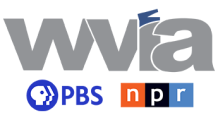-
The Tel Aviv indictment is the first publicly known instance of people being accused of leveraging military secrets to place bets on the popular prediction market.
-
Miller joined Fresh Air as an intern in 1978 and retired at the end of 2025. He led the show through many changes, like going national and editing digitally.
-
On paper, the Fed chair is just one vote among many. In practice, the job carries far more influence. We analyze what gives the Fed chair power.
-
NPR's Ailsa Chang speaks with Ainsley Harris, senior writer at Fast Company, about the accelerated rollout of delivery robots and how they're being received in communities across the country.
-
How about $350,000 within hours? The pitches flood small businesses: "No hidden fees, No BS." These financial lifelines are barely regulated and can turn into trip wires.
-
Washington Post publisher and CEO Will Lewis stepped down late Saturday, days after the newspaper cut a third of the staff.
-
Washington Post chief executive and publisher Will Lewis has departed just days after the newspaper announced massive layoffs.
-
Trump got elected promising to usher in a crypto revolution. More than a year later, bitcoin's price has come tumbling down. What happened?
-
A sweeping boycott has begun — targeting tech giants who participants believe are enabling President Trump and his immigration crackdown.
-
Coca-Cola, which owns Minute Maid, has announced it will discontinue its line of frozen juice concentrates, which have been a staple in many American homes over the past 80 years.
-
The Nasdaq had its worst days since April's tariff turmoil, as investor worries mounted about an AI bubble -- but there were some non-tech bright spots.
-
Since his first term, President Trump has wanted to be able to fire federal employees for any reason. A new rule vastly expands his authority to do that.









